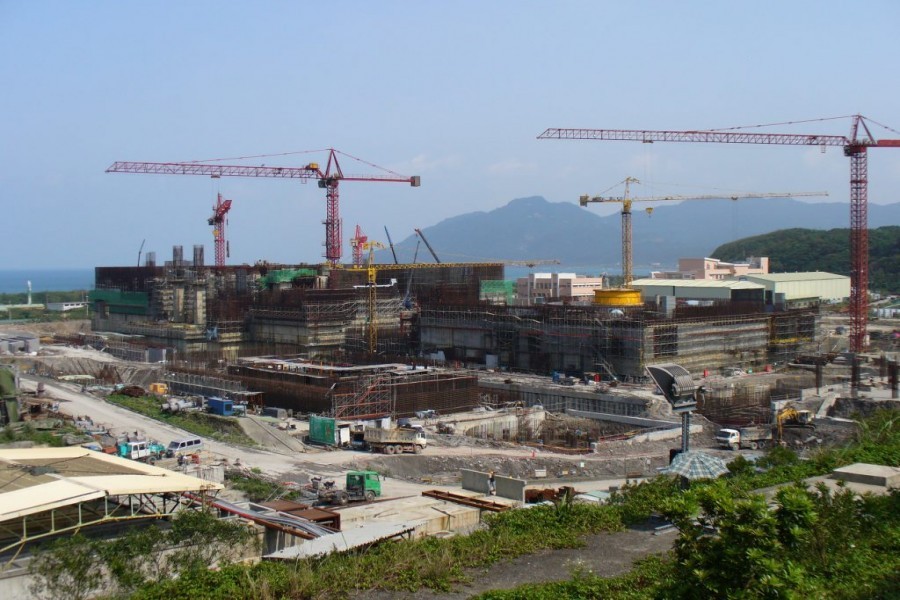Japan is expected to set up two more special economic zones (SEZs) in Bangladesh to bring more investors from the industrially developed country.
"Japanese investors eye Bangladesh as a potential destination," Japanese Ambassador in Dhaka Naoki Ito told a virtual meeting on Sunday, revealing the plan to establish the SEZs at Matarbari and Mirsarai.
He, however, said that the new SEZs would depend on the success of the one already being developed at Araihajar.
To attract the investors, he added, Bangladesh also needed to remove the existing bottlenecks like complicated customs clearance procedures and other trade restrictions.
The Cosmos Foundation broadcast live the virtual dialogue on "Bangladesh-Japan Relations: Prognosis for the Future".
Chairman of the Foundation Enayetullah Khan delivered the opening remarks, with former Foreign Affairs Advisor to the caretaker government Dr Iftekhar Ahmed Chowdhury in the chair.
Mr Ito also made it clear that the challenges being faced by the Japanese companies in Bangladesh must be addressed to ensure the influx of this potential big investments.
Talking about the Public Private Economic Dialogue (PPED), he said the two countries have resolved many issues related to business climate through this mechanism.
"Most of the Japanese companies are not happy about the customs clearance, which takes time and requires them to go through cumbersome procedures," he said, elaborating the key challenges.
"Next comes trade financing, in particular slow processing of letter of credit and restrictions on telegraphic transfer (TT)."
"In only two countries in Asia, the TT is not used as the primary method of settling import transactions," he added.
Appreciating the Bangladesh government's drive to create a better investment climate, he said that there have been a lot of improvements here despite the Covid-19 pandemic. "I fully appreciate efforts made by the government of Bangladesh."
About the Araihajar SEZ, the Japanese Ambassador said that this should provide the best possible economic zone in Asia, beating its rivals in countries like Vietnam, Myanmar and the Philippines.
"We will also look into opportunities at Mirsarai under the Bangabandhu Sheikh Mujib Shilpa Nagar being developed on a contiguous land of 30,000 acres and a possible economic zone at Maheshkhali-Matarbari area If Araihajar becomes successful," he added.
He mentioned that the SEZ at Araihajar will be ready for its operation by the end of next year.
Due to the Covid-19 situation, he could not tell exactly about how many companies are coming to invest, but said it is really crucial to see successful and continuous business partnership between Bangladesh and Japan.
"I am sure down the line it'll attract more investment from Japan," he said, adding that they might be able to see 100 companies making investments.
The Japanese envoy said the Japan International Cooperation Agency (JICA) is now conducting a feasibility study on Mirsarai economic zone and then will explore the third possible economic zone at Matarbari area, which is being developed as an energy hub and industrial zone.
"I am sure that we will have the opportunity to develop Japanese economic zone in Matarbari-Maheshkhali area as well," he added.
Mr Ito identified five challenges ahead that Bangladesh and Japan needed to address together to elevate the solid partnership to even higher level with multifaceted greater cooperation as the two countries are set to celebrate the 50 years of diplomatic relations in a big way next year.
The five challenges are: developing Bangladesh-Japan strategic partnership, making Bangladesh more attractive for business, expanding people-to-people exchange, enhancing cooperation with Bangladesh as a partner to realise Free and Open Indo-Pacific, and strengthening efforts to increase Bangladesh's stature in the region and beyond.
He said that the year 2022 will provide an excellent opportunity to elevate the partnership even to a higher level and wished that the two countries could call the partnership a "truly strategic partners".
Ambassador Ito, who already spent 20 months in Bangladesh, said the development of quality infrastructures and strengthening connectivity under the Bay of Bengal Industrial Growth (BIG-B) initiative will be beneficial not only for the development of Bangladesh, but also for the regional peace and stability.
"Our leaders are really conscious that this BIG-B is important - not only for the development of Bangladesh but also for the stability of the entire Bay of Bengal region, beyond Bangladesh itself," he said.
Md Abul Kalam Azad, Special Envoy, Climate Vulnerable Forum; Hayakawa Yuho, Chief Representative, JICA Bangladesh Office; Dr Salehuddin Ahmed, former Governor, Bangladesh Bank; Prof Masaaki Ohashi, Professor, University of the Sacred Heart, Tokyo; Manzurul Huq, Columnist, writer and academic; Prof Takahara Akio, Dean, Graduate School of Public Policy, the University of Tokyo and Ambassador (Retd) Tariq A Karim, Honorary Advisor Emeritus, Cosmos Foundation comprised the panel of discussants.
Mr Hayakawa Yuho said the huge projects under the BIG-B such as three MRT lines in Dhaka, the integrated development of the Matabari-Moheshkhali area and the deep-sea port there, Dhaka airport terminal 3, the Bangabandhu Jamuna railway bridge, EZ in Araihazar were under construction.
Mr Abul Kalam Azad said that work at Arihajar economic zone started very vigorously and the basic works have already been done. He hoped that the respective companies would be able to start their construction there very soon.
Dr Salehuddin said Arihajar is a very good place and Mirsarai might be too crowded. He suggested concentrating on Araihajar and it can become very successful. "Matarbari may be there but I'm little bit sceptic about Mirsharai."
mirmostafiz@yahoo.com


